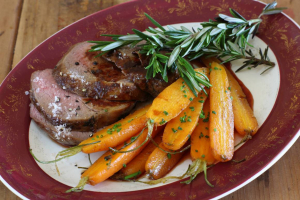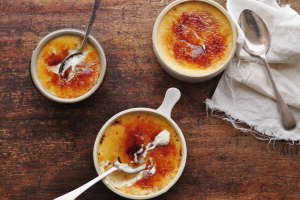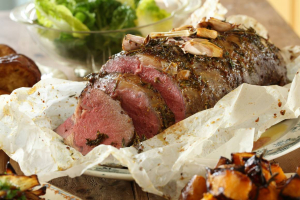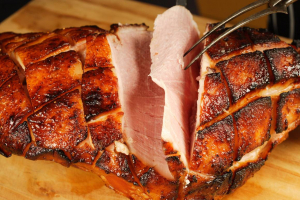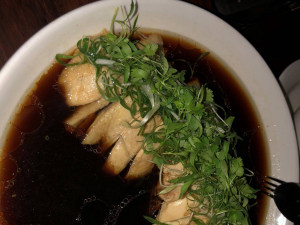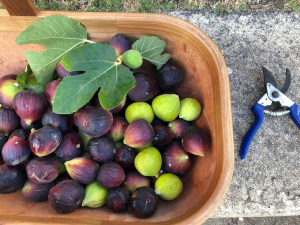Roast Quail with Fig and Bacon and Parmesan Polenta
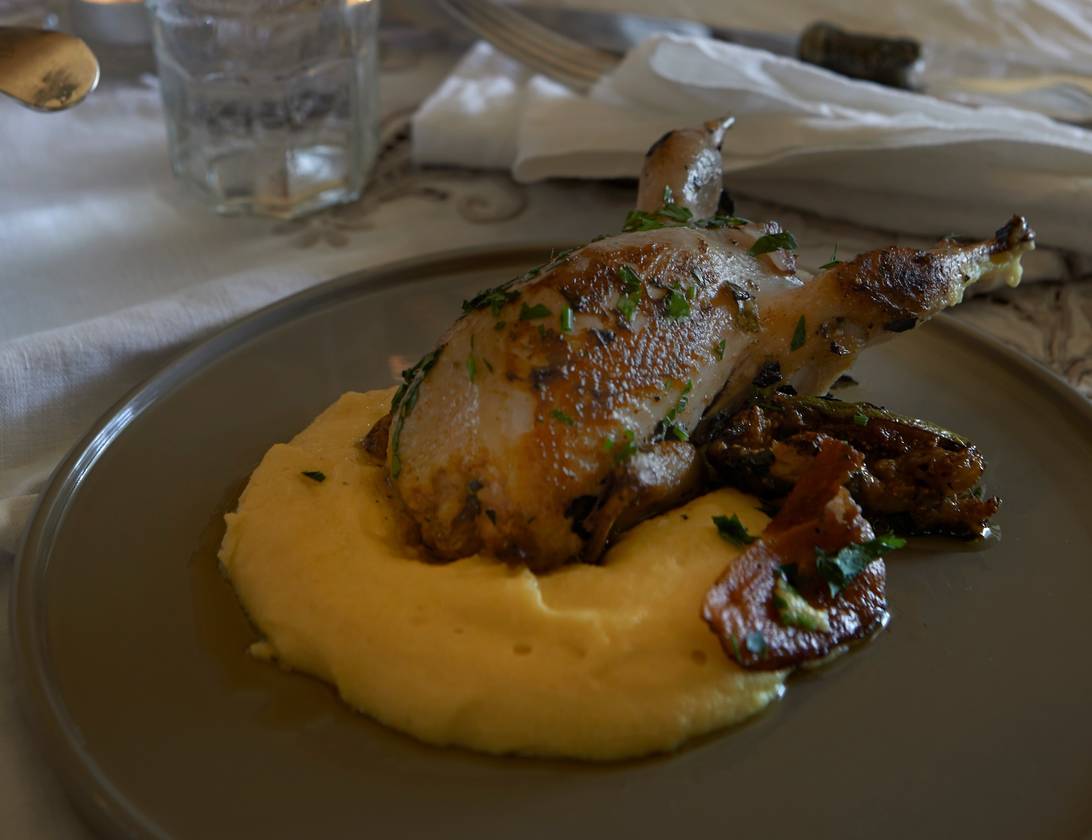
INGREDIENTS
- 8 Grape Leaves
- 8 Fig
- 1 tbspn Lemon Thyme leaves
- zest of one lemon
- 8 x 220g jumbo quail
- to taste Sea Salt and Ground Black Pepper
- 30g Unsalted butter
- 130g Belly Bacon
- to serve Flat leaf parsley
Parmesan Polenta
- 1500ml Full-cream milk
- to taste Sea salt
- 1 cup Polenta
- 1 cup Parmesan
- to taste Freshly ground white pepper
 Print Recipe
Print Recipe
Preheat the oven to 220C fan-forced (240C conventional). Place the grape leaves (if using) on a baking tray and set aside.
Place half the figs in a bowl, then drizzle with a little olive oil and add the lemon thyme and lemon zest. Stuff each quail cavity evenly with this mixture. Tuck the wings of each quail behind the bird. Rub the quail skin with a little olive oil and season with salt and pepper.
Melt the butter in a heavy-based frying pan over high heat and cook for 2-3 minutes until nut brown, adding the olive oil when the butter starts to bubble to prevent it from burning. Reduce the heat to low-medium, then very gently seal the quail on all sides for 8 minutes, turning until just light-golden all over. Place the quail, breast side up, on top of the grape leaves (if using) on the baking ray, then put a slice of bacon over each quail breast and place the remaining figs on the tray.
Roast the quails for 6-8 minutes or until just cooked. To test if the quails are cooked, pull away one of the legs and check that it is pink but not raw at the joint; return to the oven to cook further if necessary. Immediately turn the quail upside-down and drizzle with the Verjuice, then leave to rest for a few minutes.
Meanwhile, to make the polenta, place the milk and 2 teaspoons salt in a large heavy-based saucepan over a high heat. Bring to a simmer, stirring every couple of minutes to prevent the milk from catching on the base of the pan. Reduce the heat to low-medium. Stirring continuously, gradually pour in the polenta in a steady stream so that no lumps form, stirring until it is all incorporated. Stirring constantly, cook for 5 minutes or until the polenta had thickened but is still slightly sloppy. Stir in the parmesan and pepper to taste, then remove from the heat. (If the polenta stands for 10 minutes or more after removing it from the heat, stir in a small amount of milk, butter or olive oil to moisten it to the desired loose consistency.)
Scatter each quail with parsley, then serve on a bed of polenta with the resting juices spooned over and the figs alongside.


